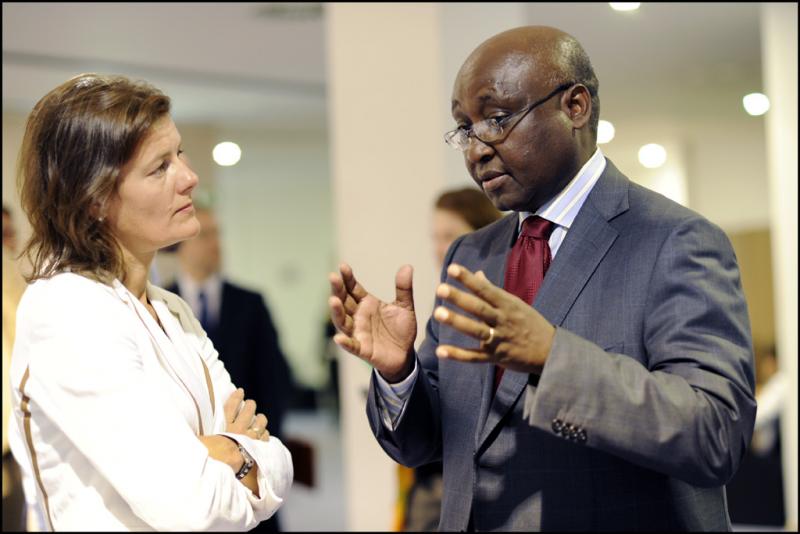
The darkest days of the global financial crisis are fading away to reveal green shoots of economic growth in much of the developed world. But in developing nations the effects of the downturn are still being felt and could get worse, say some experts who want to see more decisive action from donors.
Commodity prices have fallen on world markets, worker’s remittances have slipped off and access to credit has evaporated creating a toxic mix of problems for developing countries especially on the poorest continent, Africa.
With their high degree of economic, social and political vulnerability and poor resilience to external shocks, the global financial and economic crisis has left funding gaps in many African budgets. Many African countries are experiencing stagnation of tax revenue while drawing on external resources allocated for 2010 and beyond to plug today’s shortfalls. Unless this money is replenished, the slow and often painfully made gains of recent years towards achieving the objectives of the Millennium Development Goals could be wiped out in some African countries.
In response, the European Commission has developed a special mechanism, “Vulnerability FLEX”, to mitigate the social consequences in the worst hit countries in the African Caribbean Pacific region.
The Vulnerability FLEX instrument builds on an April 2009 commitment made by the Commission to mobilise all instruments at its disposal to cushion the impact of the crisis.
As part of Vulnerability FLEX the Commission has earmarked 500m Euros to be mobilised for countries most affected by the economic crisis. The money is to come from the reserve of the 10th European Development Fund under which €22 682 million Euros have been allocated for the 2008-2013 period.
But the Commission’s Vulnerability FLEX mechanism appears to fall short of the recommendations of some experts, who say that donors need to allocate new resources to mitigate the effects of the financial crisis, not just bring forward available funds.
Oxford University professor of international political economy Ngaire Woods, has written a study, commissioned by the European Parliament and published in September, on "The international response to the global crisis and the reform of the global financial and aid architecture" (attached at the bottom of this article). Ms Woods’ report looks at how multilateral institutions such as the G20, the International Monetary Fund, the World Bank and the European Union have managed the impact of the global financial crisis on developing country.

In her report, Ms Woods questions the decision of many donors to “front load” or bring forward existing aid allocation and promises. At a meeting of the European Parliament’s Development Committee in early September, Ms Woods told members that such an approach is providing “an immediate short-term fix but is creating a larger development problem down the road”. (To hear more from Ms Woods, click on the audio tab below).
The Vulnerability FLEX instrument is conceived as a demand-driven mechanism. That means crisis-affected developing countries will have to submit requests for assistance under the programme and their application assessed on the basis of a set criteria.
For example, countries must show a noted depletion in foreign reserves or that they have a residual financial gap that cannot be filled by other donors or through borrowing, among others. Fragile states will have special benchmarks for qualification.
Also at the September Parliamentary Committee, was Donald Kaberuka President of the African Development Bank. As well as affirming the negative impacts of the global financial crisis on economies across Africa, Mr Kaberuka questioned donor preference for criteria based allocations. Public finance management is for instance a key criterion for developing countries seeking to benefit from budget support programmes, yet capacities to implement such complex reforms in the most vulnerable countries are often limited. Though Mr Kaberuka said he accepts that performance based allocation of funds is important for ensuring that donor money is well spent, such systems could prevent some of the world’s most needy people accessing much needed resources.
“In many countries where those conditions are not being met you have got millions of poor people who are not able to access resources,” said Mr Kaberuka. “So the issue then becomes how do you balance performance based reward and the needs, especially for millions of children who are in those countries, who have the same rights as children who are in countries that are well governed.” (To hear more from Mr Kaberuka, click on the audio tab below).
Log in with your EU Login account to post or comment on the platform.